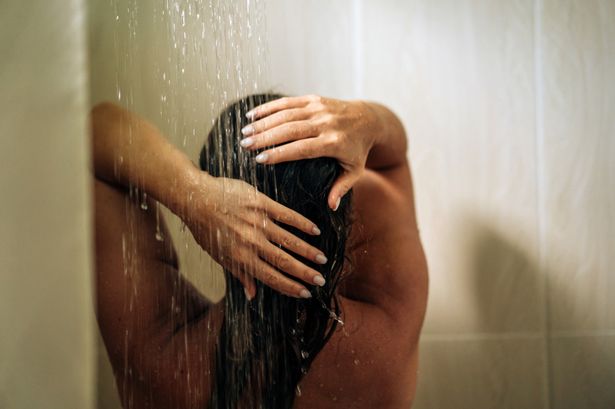Maintaining optimal water pressure is essential for a comfortable and functional home. Low water pressure can be a persistent nuisance, affecting everything from showering and handwashing to laundry and dishwashing. While a professional plumber can diagnose and address complex plumbing issues, many cases of low water pressure stem from simple, easily rectified problems. One common culprit is sediment and mineral buildup within the plumbing system, particularly in the aerators and showerheads. These small devices, designed to mix air with water for a smoother flow, can become clogged over time, restricting water flow and diminishing pressure. Fortunately, a straightforward DIY solution involving a homemade cleaning remedy can often restore water pressure to its optimal level, saving you the cost of a professional service call.
The primary ingredient in this homemade remedy is white vinegar, a readily available household item with powerful descaling properties. White vinegar’s acidity effectively dissolves the mineral deposits, such as limescale and calcium buildup, that restrict water flow. For cleaning aerators and showerheads, a simple soak in undiluted white vinegar is often sufficient. Remove the aerator from the faucet or the showerhead from its arm, and submerge them in a container filled with white vinegar. Allow them to soak for at least 30 minutes, or even overnight for heavily clogged fixtures. The vinegar will break down the mineral deposits, allowing for free water passage. After soaking, rinse the components thoroughly with clean water to remove any loosened debris and residual vinegar. Reassemble the fixtures, and you should notice a marked improvement in water pressure.
For more stubborn buildup, a more involved approach might be necessary. A mixture of equal parts white vinegar and water can be used to create a cleaning solution for internal pipe cleaning. This method is particularly effective for addressing mineral deposits within the pipes themselves. First, shut off the main water supply to the affected area. Then, disconnect the pipe section you intend to clean. If possible, submerge the disconnected pipe section in the vinegar-water solution. Allow it to soak for several hours, or even overnight, to loosen and dissolve the mineral buildup. Alternatively, you can fill the disconnected pipe section with the cleaning solution and allow it to sit for the same duration. After soaking, flush the pipe thoroughly with clean water to remove any dislodged deposits and residual cleaning solution. Reconnect the pipe and restore the water supply. This procedure can significantly improve water pressure by clearing internal blockages.
Beyond vinegar-based solutions, other readily available household items can contribute to maintaining optimal water pressure. Baking soda, known for its mild abrasive and cleaning properties, can be combined with vinegar to create a potent cleaning paste. This paste is particularly effective for removing stubborn deposits from the exterior surfaces of faucets and showerheads. Apply the paste to the affected areas, allow it to sit for a few minutes, and then scrub gently with a soft brush or cloth. Rinse thoroughly with clean water to remove any residue. Regular cleaning with this baking soda-vinegar paste can prevent buildup and maintain optimal water flow. Additionally, lemon juice, with its citric acid content, can serve as a natural descaling agent. Similar to vinegar, lemon juice can be used to soak aerators and showerheads, effectively dissolving mineral deposits.
While DIY solutions can effectively address many common causes of low water pressure, there are instances where professional intervention is necessary. If the problem persists after attempting these home remedies, or if you suspect a more complex underlying issue, such as a leak or a problem with the main water supply, it’s crucial to consult a qualified plumber. A plumber can accurately diagnose the problem and recommend the appropriate course of action. Ignoring persistent low water pressure can lead to more significant plumbing problems down the line, so it’s always best to err on the side of caution and seek professional assistance when needed.
Maintaining consistent water pressure is integral to a comfortable and efficient home. By adopting preventative measures and addressing minor issues promptly, you can avoid the frustration and inconvenience of low water pressure. Regular cleaning of aerators and showerheads with vinegar or lemon juice can prevent mineral buildup and maintain optimal flow. Periodic flushing of pipes with a vinegar-water solution can address internal deposits and improve overall water pressure. For external cleaning, a baking soda-vinegar paste can effectively remove stubborn stains and buildup. However, if these DIY solutions fail to resolve the issue, or if you suspect a more serious underlying problem, consulting a professional plumber is essential. With proper care and maintenance, you can ensure a steady and reliable flow of water throughout your home.














